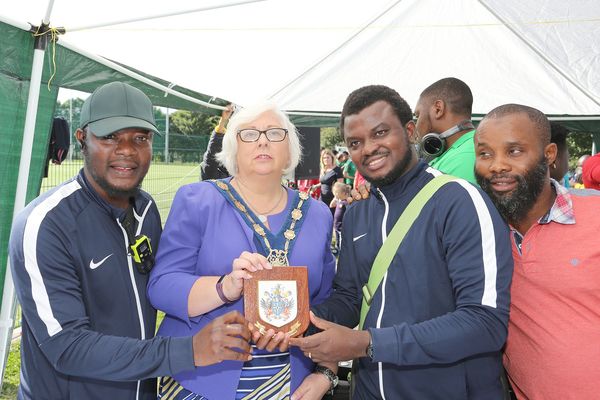THIS week I walked straight into a guava inside a Belfast shop. Yes, I am telling you – the shock on my face. A real guava!
Briefly, it is a fruit containing cellulose which we ate as youngsters. When the earth refused to move away from you, that is, if you were constipated, for us of the Luo culture the guava was the remedy. We went to the fields, brought back the ripe guavas and never ate them immediately and not on an empty stomach.
They have hundreds of very tiny seeds and a ripe guava is quite succulent; with that texture, the seeds roll inside your stomach and perform wonders to your constipated self.
So from now on I know where me and family will treat full stomach in the future – that shop on Sandy Row owned by a retailer from Sudan.
Belfast is becoming home to a number of businesses owned by people from minority communities. There are now shops stocking a diversity of groceries and spices from different parts of the world. Some of these shops are attracting customers from different nationalities always looking to get something that they cannot find in the long established retail stores. Other shops within this ethnic consumer category seem to charm natives of Northern Ireland.
Anyway, so far there hasn’t been a study about consumer behaviour in these shops. Not that a survey is needed. It is the very idea of migration that has allowed this to happen. So, without the early Chinese settlement in Northern Ireland, Asian dishes would be rare. It is their migration into Ireland that has guaranteed all of us a different taste of food.
Something like egg-fried noodle – many of us Africans would not have known where to start because it is not our delicacy but now we are delighted to have such food on our plates.
Nilotic Kavirondo or Luo r not a tribe but a way of life. The migration began frm south of Sudan&dispersed in2 Ethiopia,eastern Congo,Uganda,Kenya&in2 the Mara.The migration helped people N.Uganda. Lou culture is diverse&rich,here we see Lou Jaluo&young beautiful Nyaluo's. pic.twitter.com/xA08xtp7Y1
— @Kahilu (@WMbilishi) March 20, 2018
These retail places cropping up are not ethnic enclaves that bring in traditional ethnic customers alone, they receive people of all ranges of life and mostly do not want to be treated as ethnic shops but a business, a service to the community. To prove this, the shops are located in various areas: Ormeau Road and Embankment, Sandy Row and Lisburn Road and fast food shops on the Falls road. In fact there are more fast foods shops owned by people from ethnic minority backgrounds than retail stores run by the same.
Ok, let’s get a bit academic here. There is an abstract notion known as the sojourner mentality which means that a migrant lives abroad for many years, investing their resources, hard work and time, but will never lose ties with his/her country of birth. What they do is to compensate for that loss with a compensatory investment in their new location; for example, joining a social group, a faith organisation, attending or organising annual cultural/historical days and doing business. It does not mean that the sojourners will completely detach from the host.
However, in many cases, they will try and replicate in their lives that which they miss from back home. Newcomers are given friendship overtures by those who have been here longer, the first or second generation and, if time allows, they are mentored.
Quickly, they discover that time and the hallowed calendar are two things that cannot be negotiated without mutual consideration.
For example, many would wonder why the respect for time is paramount in a place where people love to bump into each other and chat for ages. I have said this before and will repeat it again: when the Irish meet, there is no stopping them, they chat away like Africans and that is the truth in comparison to some of their cousins out of these shores.







